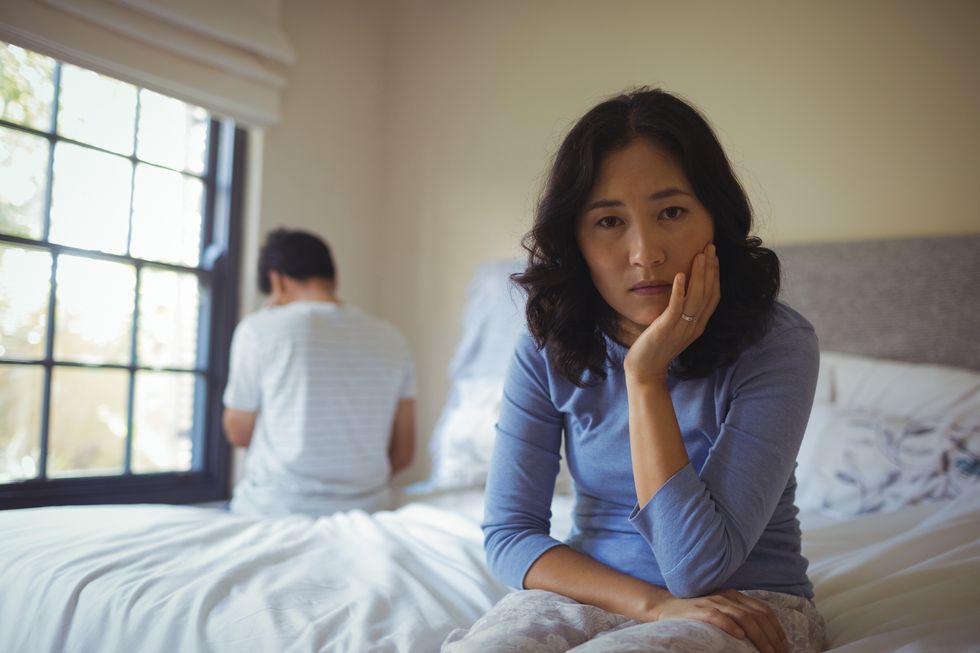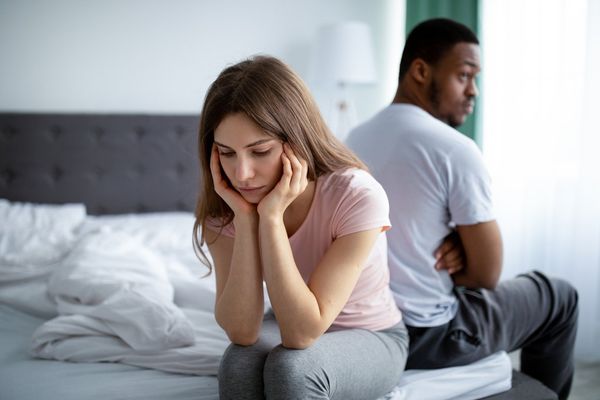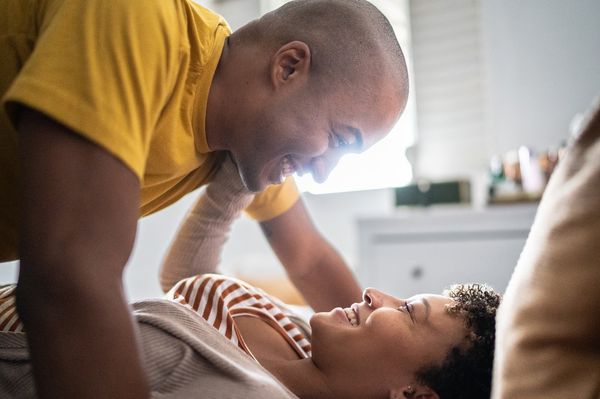By Brianne Grogan, PT, DPT, for Women's Health Foundation
Fear. Anxiety. Pain. Burden.
Sex probably does not come to mind when you read these words, but for many women with dyspareunia—or pain with intercourse—these words define sex. Women who suffer from dyspareunia may not want to have sex but feel obligated to participate for the sake of her partner.
They are not alone. And, unfortunately, dyspareunia is often left untreated because many women are embarrassed to talk about it, ashamed of their condition or left to think that it's "normal" for sex to hurt.
Find out what to do When Sex Gives You More Pain Than Pleasure.
If you have dyspareunia you may have brought the issue up with your health care provider and been left to think that it's "all in your head" or that the condition will resolve on its own. You may feel like your provider does not care or is not listening to you, but it might be that he or she is not aware of the symptoms of dyspareunia or the broader category of pelvic pain (which often contributes to painful intercourse): chronic pelvic pain syndrome, or CPPS. CPPS is a mystery to many health care providers because the cause is not often clear and the symptoms can vary widely.
CPPS can result from a variety of factors including traumatic injury such as car accidents or falls, injuries sustained during pregnancy or childbirth, a history of painful periods or endometriosis, a history of chronic urinary tract infections or yeast infections, interstitial cystitis (painful bladder syndrome), psychological trauma or a history of physical or sexual abuse.
Often, CPPS it the result of one or more of these issues and the net result is tense, overactive pelvic floor muscles. Overactive pelvic floor muscles can make intercourse incredibly painful. Painful intercourse leads to anxiety about intercourse, which leads to more muscle tension and more pain.
If this sounds familiar, please seek help. Do not feel like you need to be "strong" about the pain—it may not resolve on its own.
The following tips may help you or a loved one cope if you are living with dyspareunia or CPPS:
Relaxation
Finding a relaxation technique that works for you is a key strategy for dealing with dyspareunia or CPPS. Deep breathing, stretching, meditation, listening to music, lighting a candle—every woman is unique, and what works for one person may not work for another. Find a technique that calms you and use it before and during sex.
Let your partner know that you need plenty of time to "warm up" before game time if he wants to hit it out of the ballpark! Be honest with him about strategies you may need to RELAX during intercourse, including timeouts for breathing exercises or simply a moment to pause, rest and regroup before continuing.
Open communication about your needs will help you and your partner feel at ease about your personal journey toward recovery.
With proper training and treatment, recovery from dyspareunia and CPPS is completely reasonable to expect.
Position considerations
"Woman on top" requires more hip, thigh and pelvic floor muscular activation, which is why this position should be avoided—at least initially—if your pelvic floor muscles tend to be tense or hyperactive. You may be more comfortable in sexual positions that allow you to fully relax; for example, lying on your side. Some women with tense pelvic floor muscles do well on their hands and knees or resting on their elbows and their knees. In this position (elbows and knees), the muscles of the pelvic floor are slightly stretched which may make intercourse less painful.
Medical treatment
Find a health care practitioner who is sympathetic to your condition. In most cases, a multidisciplinary approach can be incredibly helpful. This may include—at the very least—a gynecologist (or certified nurse midwife, nurse practitioner or naturopath) and a women's health physical therapist.
Sometimes medication such as antidepressants or muscle relaxants will be prescribed. You may also want to enlist the services of a psychologist or counselor to help with the emotional aspect of dyspareunia and CPPS. If you prefer to look "outside the box" of conventional Western medicine, consider seeking help from a chiropractor, massage therapist or acupuncturist.
Always remember that you are not alone if you suffer from pelvic pain that makes sex difficult or impossible. It is not your fault, it is not a flaw, and there is help.
Brianne Grogan is a women's health physical therapist and the founder of FemFusion Fitness LLC.







